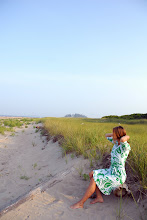
Landscape: [Dutch landschap, from Middle Dutch landscap, region : land, land + -scap, state, condition (collective suff.).]
Before I describe my work on the project I have titled “Vanishing Landscapes”, I would like to pose some questions to you, the viewer.
What do you think about the landscape here on the seacoast?
What does it mean to you?
____________________________________________________________________________________________
This is what it means to me.
I love the smell of the ocean, the quiet sight of lobster boats heading out to sea in the early morning, and the sound of a foghorn calling out to ships on a misty afternoon. I love the taste of fish, and the delight in sharing a freshly caught Maine lobster with visitors from out of town. My feet move happily over our craggy rocks and play in the tiny waves at the water’s edge in summer. There is nothing more soothing than the sound of waves on the shore. And it is breathlessly exciting to look out at the open ocean and know that across it lies another continent.
For me personally, and I believe for most of us fortunate enough to live here, these things are about a quality of life. They are perhaps not a necessity, but they enrich our lives. For our community of commercial fishermen, however, these idyllic characteristics of the natural landscape represent their livelihood. The ocean is their workplace; they depend on the catch to pay their mortgage, grocery bills, and children’s tuition, and the working waterfront is an integral part of their survival.
Due to increasing restrictions from the federal government in an effort to manage marine resources, fishermen can no longer afford to work as fishermen. They are allowed 40 days at sea per year. There are 18 regulated ground fish stock in the Gulf of Maine, all of which, according to recent regulations, must be replenished to certain levels simultaneously– a nearly impossible occurrence in nature. The cost of gasoline and other resources is steadily increasing. And if trends continue in this direction, fishermen will be a dying breed with no way to revive themselves.
In just a few years, we have lost 40% of our ground fishing boats through regulatory attrition. As a result, larger companies are beginning to take over the industry. Waterfront property is being bought by developers and turned into condos. Without boatyards, docks and moorings, the essential fishing infrastructure is lost, and with it, the livelihood of our fishermen. With the loss of the fishing community, we will also lose our local seafood, many jobs, an historical, lively dimension of our natural landscape, and the knowledge the fishing community has passed down through generations.
The lobstermen and fishermen I have photographed here have been an incredible source of inspiration to me. They are some of the hardest working people I have met in my life. They work with their hands, their bodies and their minds to feed their families and to provide us with a staple food we have depended on since we first colonized this land. They are without question an essential part of the natural landscape that surrounds us, and their value in our lives is immeasurable.
Sofia Piel
September, 2009
